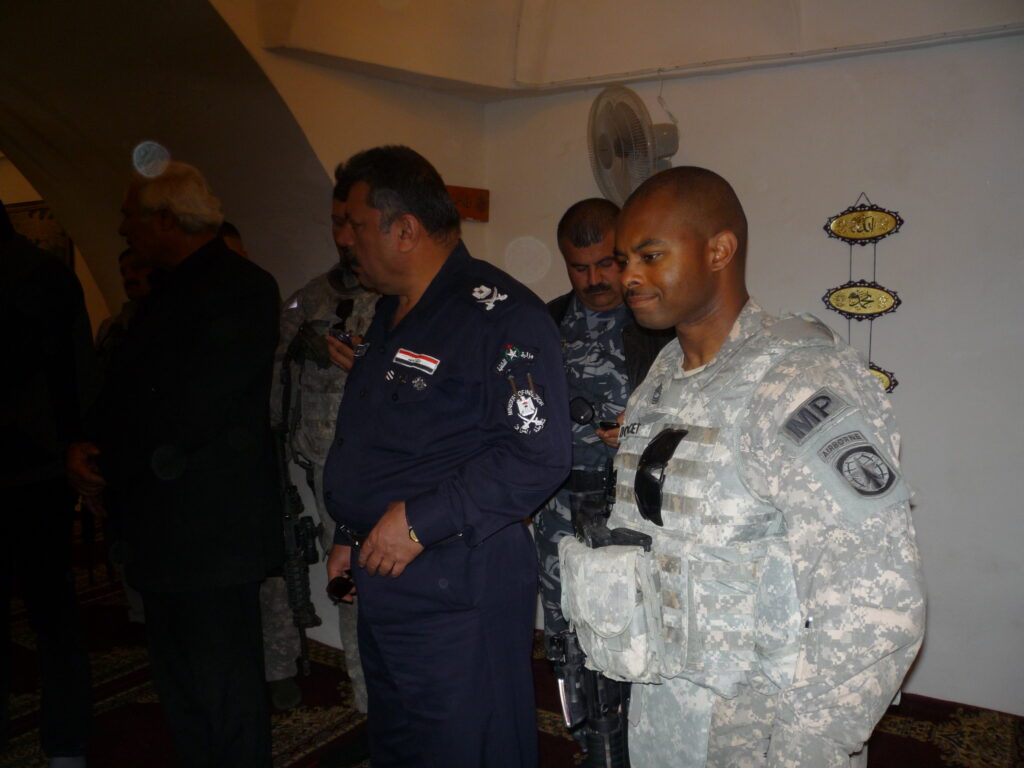During my second tour in Iraq, my Military Police platoon trained and advised Iraqi security forces. I also had medics, communications specialists, logistic specialists, mechanics, civilian contractors, and interpreters who were empowered to make decisions to accomplish our mission most effectively and efficiently.
The challenge was balancing where to position myself on each mission, which depended on the mission priority. For instance, if we were conducting a joint patrol with the Iraqi security forces, training on a medical task, assisting the Iraqis with inventories, and conducting key leader engagements, I would trust my squad leaders to conduct the joint patrol while I oversaw the medical training.
While communicating with my platoon as a Platoon Sergeant, I always kept things clear, concise, and straightforward. Everyone understood their task and purpose, and I created a culture in which soldiers were good at back briefing other leaders and me.
According to the Army’s leadership manual ADP 6-22, encouraging young leaders to make decisions helps them exercise initiative, accept responsibility, and take ownership. In essence, the initiative is rewarded.
Tough decisions can cause leaders to prioritize and execute; basically, I always revert to my military service, where decision-making is always encouraged (and expected) at all levels.
In any situation, leaders must provide the task and purpose to their team, indicating what needs to be done (objectives) and the reason (the why). In any organization or business, if the leader has selected the right people and trained them properly (e.g., each individual is counseled and knows what is excepted), the team should function to accomplish the mission.
In other words, as a leader, prioritize the task, and let the team achieve success by accomplishing the mission.
Yet, decentralized leadership enhances internal accountability, gives a sense of ownership, empowerment, whether through participation or delegation, and offers a buy-in for the organization’s goals.
From my experience, when leaders get their people involved in the decision-making process, trust is built, and people feel like they are part of the team, and problems get solved.
Nevertheless, while I was overseas in Iraq, we lived and operated with the local populaces (in so called – Combat Out Post). We could respond faster to emergencies and build better relationships with the Iraqi people. This made it easy to gather intelligence and build allies with community leaders. Every soldier understood the commander’s intent without fear of faults, making decentralized leadership a proven concept.
As a leader, I believe in developing other leaders through education and training. Because education gives us the information necessary to make those tough decisions. Yet, not enough knowledge and too much information can prevent us from making decisions.
What tough decisions have you been entrusted with in your profession or life in general?

